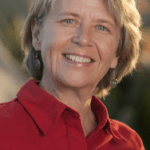
Kamen works as a lifestyle management consultant who explores the art and science of happiness as a speaker, author, and positive psychology expert. Through her globally syndicated podcast, books, media appearances, and documentary film, Lisa has impacted millions of people around the world.
LISA CYPERS KAMEN
meet your host
leave a review
Use Your Words Wisely: Idioms, Expression, and Meaning
Original Air Date Wednesday, January 26, 2022
There are approximately 6,500 languages spoken in the world. In each of those, there are multiple dialects, meanings, and expressions. While some Cincinnatians may say ‘Jeezle Petes’ when they are confused by someone’s behavior. Our friends across the pond say ‘for Pete’s sake’ with a similar connotation, even though both groups are both speaking English. Consider some of your favorite words and expressions. Where do they originate? Did your grandparents create it out of thin air or is it a turn of phrase rooted deep into linguistic history?
To investigate all the joy this human communication tool can offer, Harvesting Happiness Podcast Host Lisa Cypers Kamen speaks with two wordsmiths about the origin story of age-old expressions and how language is ever-evolving.
Martha Barnette is the host of A Way with Words, a radio show that investigates the connection between dialects and linguistic diversity in languages as well as the origin of widely-used phrases.
Beth Kobliner recounts her parents’ journey of collecting 11,000 different language expressions which they compiled in their book, So to Speak: 11,000 Expressions That’ll Knock Your Socks Off. Beth also engages Lisa with some fun word and expression games.
Tune in:
Meet Our Guests:

Martha Barnette is co-host of the public-radio show A Way with Words, heard each week by listeners on National Public Radio affiliates across North America, and worldwide by podcast. Before her work in radio, Martha was a reporter for the Washington Post and an editorial writer for the Louisville Courier-Journal. She’s the author of three books on word origins.
Martha Barnette — Use Your Words Wisely:
- American English is ripe with geographical dialects, linguistic diversity, and slang. {1:39}
- Familects and idiolects are examples of family linguistic heirlooms. {6:16}
- Navigating grammar rules and embracing the miracle of language. {11:17}
- Martha shares how she ended up being a part of the A Way with Words radio show. {17:16}
- Martha suggests multiple ways to relax and have fun with the joys of language. {22:48}
Follow Martha Barnette:

Beth Kobliner is a commentator and journalist. A New York Times Best-selling author several times over, Beth has contributed to many well-known US magazines and newspapers including the New York Times, Wall Street Journal, and Huffington Post. A graduate of Brown University, she lives in New York with her family. Her parents authored the book So to Speak and passed away before it reached final publication.
Book: So to Speak: 11,000 Expressions That’ll Knock Your Socks Off
Beth Kobliner — Expressions and Their Origins:
- Beth’s parents compiled 13-years of expressions for the book So to Speak: 11,000 Expressions That’ll Knock Your Socks Off. {28:47}
- Games you can play with the So to Speak book. {35:35}
- Language evolves and is a living, breathing organism. {42:24}
- Modern lexicons and the origin of common expressions. {46:54}
Follow Beth Kobliner:
Shareables:
Our Proud Sponsor:
Daigle Bites
—On today’s inaugural Season two episode, Lauren is inviting on psychotherapist and New York Times bestselling author, Lori Gottlieb! Listen here: wondery.fm/Happiness_Daigle
Grab More Joy Below:
Are We Happy Yet? Eight Keys to Unlocking a Joyful Life — A boot camp manual for greater emotional fitness. Happiness waits for no one and sometimes we all need support. What is getting in the way of your happiness right now?
H–Factor: Where is Your Heart? — Lisa’s documentary film explores the journey of human happiness. Emotions are contagious and happiness is a universally desired state. We tend to forget we all have the freedom to be happy or the liberty to be miserable each day.
Continue Your Journey:
Related Episodes:
- Expressions and Creativity Through Music
- Spoken Word, Fearlessness & the Art of Living Out Loud
- Harvesting Happiness Talk Radio Welcomes Grateful Nation of Beth Israel Deaconess Medical Center, November 17
- Spoken Word, Fearlessness & the Art of Living Out Loud By Lisa Kamen
- Amazon Presents: Daigle Bites
WANT MORE?
Nothing gives happiness like a free gift...
Sign-up, stay connected, be gifted access to a free meditation video, and receive our monthly Happiness Headlines eZine.
No spam, we promise. We don’t share your information. Get updates on special offerings, events and optimal lifestyle management tips.
Nothing gives happiness like a free gift...
Sign-up, stay connected, be gifted access to a free meditation video, and receive our monthly Happiness Headlines eZine.
No spam, we promise. We don’t share your information. Get updates on special offerings, events, and optimal lifestyle management tips.
Resources
Explore
CONTACT
ABOUT
EPISODES
SHOP
Visit Harvesting Happiness
PRIVACY POLICY
Our communications do not constitute mental health treatment nor is it indicative of a private therapeutic relationship.
Individuals seeking help for trauma related issues or other psychological concerns should seek out a mental health professional.
© 2010-2024 Harvesting Happiness Talk Radio
Website Design by Nadia Mousa